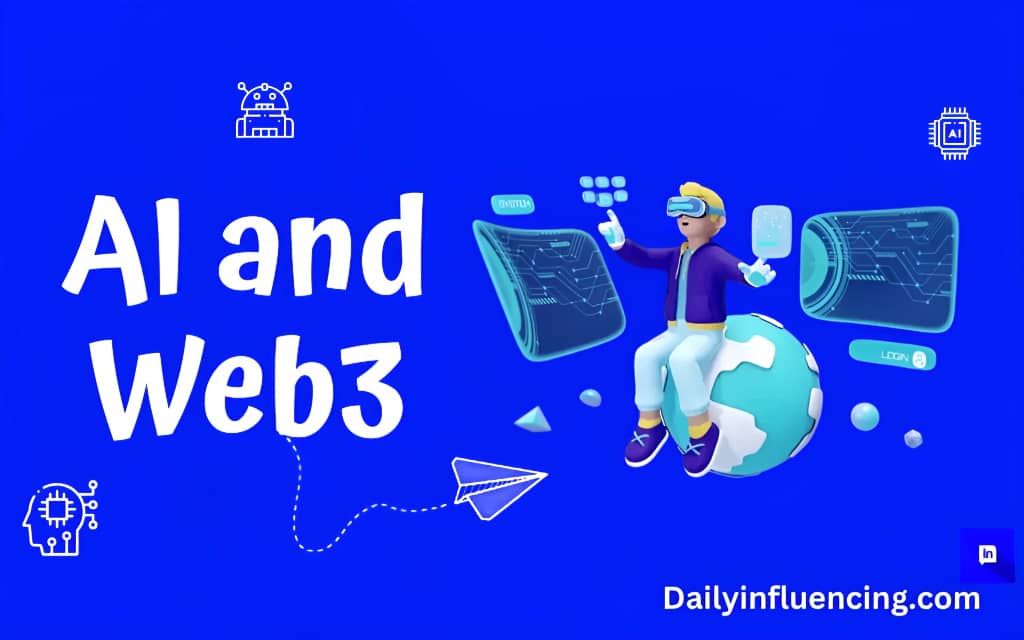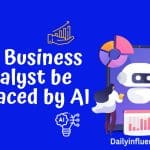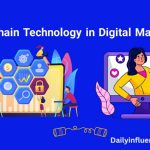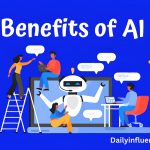
The internet is changing, and Web3 is leading the way. Instead of big companies controlling everything, Web3 is all about decentralization—giving power back to users. A key part of this transformation is smart contracts—self-executing agreements that automate transactions without the need for middlemen.
But what happens when we add artificial intelligence (AI) into the mix? The result is smarter, more flexible, and more efficient smart contracts that can learn, adapt, and make better decisions.
Imagine contracts that don’t just follow set rules but analyze data, predict trends, and adjust based on new information. That’s the future of AI-powered smart contracts. This combination is already changing industries like finance, healthcare, and supply chain management, making processes faster, safer, and more efficient.
In this article, we’ll break down what smart contracts are, how AI is making them smarter, real-world application, challenges and future possibilities. Whether you’re a techie or just curious about the next wave of internet innovation, this guide will help you understand how Web3 and AI are working together to create a smarter, more connected world.
What Are Smart Contracts In Web3?

Smart contracts are digital agreements that automatically execute when specific conditions are met. They are written in code and stored on a blockchain, ensuring transparency, security, and immutability. For example, if you buy a song from an artist using a smart contract, the payment is automatically released to the artist as soon as the transaction is confirmed—no middlemen required.
In the Web3 ecosystem, smart contracts are the backbone of decentralized applications (dApps). They enable trustless transactions, meaning as a user you don’t have to rely on third parties to enforce agreements. This makes processes faster, cheaper, and more secure. However, traditional smart contracts have limitations. They are static, meaning they can’t adapt to new information or changing conditions. This is where AI comes in.
How AI Is Making Smart Contracts Smarter

AI is transforming smart contracts by adding layers of intelligence and adaptability. Here’s how:
1. Adapting To Real-Time Data
Traditional smart contracts follow predefined rules, but AI-powered contracts can analyze real-time data and adjust their behavior accordingly. For example, an AI-enhanced insurance contract could automatically adjust premiums based on weather patterns or market trends.
2. Predicting Future Outcomes
AI can analyze vast amounts of data to predict future outcomes. In decentralized finance (DeFi), AI-powered smart contracts can predict market trends and optimize trading strategies, ensuring better returns for users.
3. Detecting And Preventing Errors
AI can audit smart contract code for vulnerabilities, reducing the risk of exploits. This is especially important in high-stakes applications like financial transactions.
4. Enhancing Data Reliability
Smart contracts often rely on external data sources called oracles. AI can enhance these oracles by gathering and verifying data from multiple sources, ensuring accuracy and reliability.
5. Personalizing User Experiences
AI can tailor smart contracts to individual users. For instance, a trading bot could learn your risk tolerance and financial goals, then execute trades on your behalf.
Real-World Applications Of AI-Powered Smart Contracts

The introduction of Web3 and AI is already transforming industries. Here are some real-world examples:
1. Finance And DeFi
AI-powered smart contracts are optimizing lending protocols, predicting market trends, and automating trades. For example, a DeFi platform could use AI to adjust interest rates based on user behavior and market conditions.
2. Supply Chain Management
AI can monitor supply chain data in real-time, automating compliance checks and dispute resolutions. This increases transparency and efficiency, reducing delays and costs.
3. Healthcare
AI-powered smart contracts can manage patient records, automate insurance claims, and ensure regulatory compliance. This improves healthcare delivery and patient outcomes.
4. Real Estate
AI can streamline property transactions by automating verification, risk assessment, and escrow management. This makes the process faster and more secure.
5. Content Moderation
In decentralized social networks, AI can automatically moderate content to identify spam, misinformation, or harmful language. This fosters a safer and more welcoming environment.
Challenges And Risks In AI And Web3
While the benefits of AI-powered smart contracts are significant, there are challenges to consider:
1. Data Privacy-Web3
AI relies on vast amounts of data, raising concerns about privacy and security. Decentralized data storage and encryption can help mitigate these risks.
2. Bias In AI Algorithms-Web3
AI models can inherit biases from the data they are trained on. Regular auditing and explainable AI techniques can help address this issue.
3. Complexity-Web3
Integrating AI with smart contracts requires advanced technical expertise. Simplifying development tools and frameworks can make this technology more accessible.
4. Regulatory Uncertainty-Web3
The legal status of AI-powered smart contracts is still unclear. Governments and organizations are exploring regulatory frameworks to ensure easy use and accountability.
What Is The Future Of Web3 And AI
The use of Web3 and AI is just beginning. As these technologies continue to grow, we can expect even more innovative applications. For example, AI could enable the creation of synthetic assets that track the performance of real-world assets, unlocking new investment opportunities.
Moreover, AI-powered smart contracts could play a key role in decentralized autonomous organizations (DAOs), enabling more efficient governance and decision-making. Imagine a DAO where AI analyzes proposals, summarizes key points, and highlights potential outcomes, empowering members to make informed choices.
The possibilities are endless. From personalized trading bots to intelligent NFTs, the integration of Web3 and AI is paving the way for a smarter, more connected digital future.
Conclusion
Web3 and AI are a match made in tech heaven. By combining the decentralized, trustless nature of Web3 with the intelligence and adaptability of AI, we are creating a new generation of smart contracts that are smarter, faster, and more efficient.
From automating financial transactions to optimizing supply chains, AI-powered smart contracts are transforming industries and unlocking new possibilities for innovation. While challenges like data privacy and regulatory uncertainty remain, the potential benefits far outweigh the risks.
As we look to the future, the integration of Web3 and AI will continue to shape the digital landscape, making it more user-centric, transparent, and intelligent. Whether you’re a developer, investor, or simply a curious observer, now is the time to explore the exciting possibilities of this dynamic duo.
So, what do you think about the future of Web3 and AI? How do you see these technologies impacting your life? Share your thoughts and join the conversation about the next frontier of the internet. Together, we can build a smarter, more connected world.
Frequently Asked Questions
How is AI used in Web3?
To monitor and analyze large amounts of data generated by Web3 platforms and applications to identify potential vulnerabilities, malicious activities.
In Web3 ai can be seen in decentralized prediction markets such as Augur, which helps to make more accurate predictions by analyzing data from various sources.
Can AI create smart contracts?
Dynamic Adaptation: AI can enable smart contracts to adapt to changing conditions and new information, making them more responsive and effective.
Services: In the financial sector, AI-coded smart contracts can automate complex financial transactions, such as derivative trading and loan origination.
How AI can lead to smart living?
AI-powered smart home technology is quickly becoming the new standard for modern living. With its ability to enhance energy efficiency, strengthen security, and personalize automation, it’s reshaping how homes function and meet the needs of today’s tech-savvy residents.





